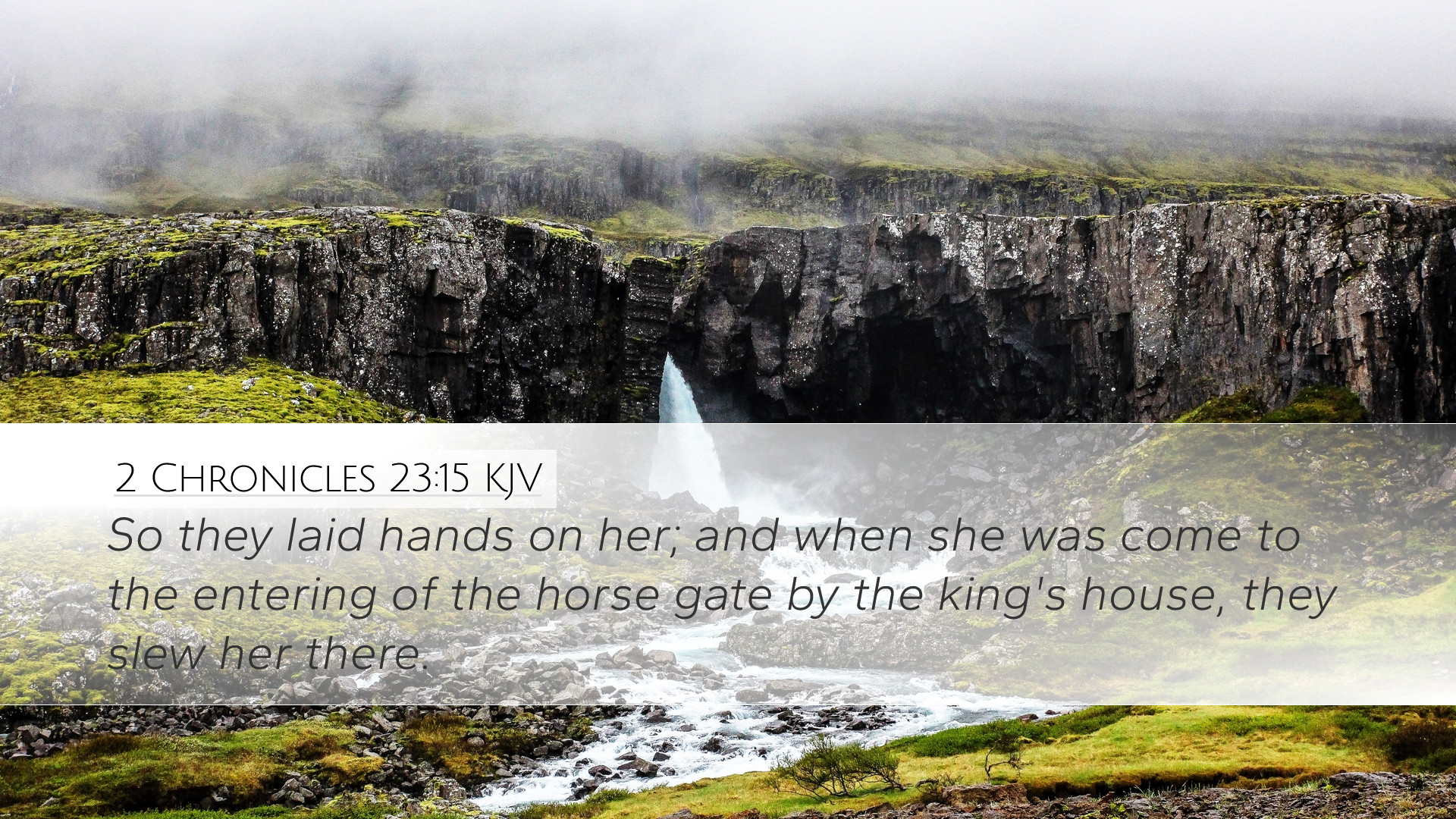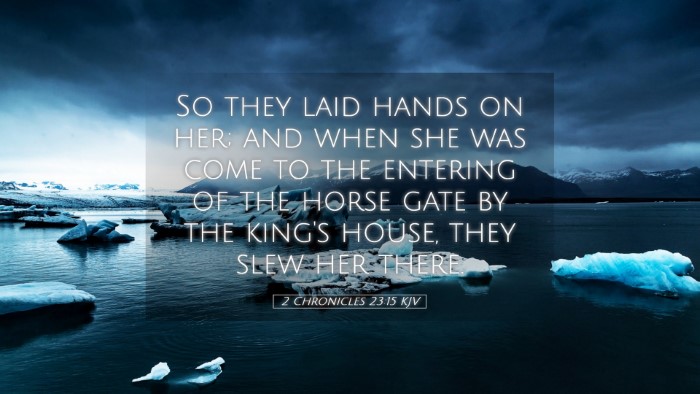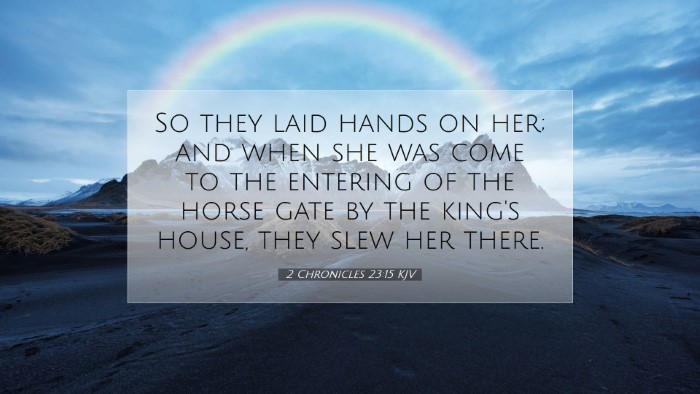Commentary on 2 Chronicles 23:15
Bible Verse: "So they laid hands on her; and when she was come to the entering of the horse gate by the king’s house, they killed her there."
Contextual Overview
The narrative of 2 Chronicles 23 reflects a significant moment in the history of Judah. It illustrates the struggle for leadership and faithfulness to God amidst a backdrop of idolatry and tyranny. This chapter captures the overthrow of Athaliah, the usurping queen, and the restoration of rightful worship in the temple.
Commentary Insights
Historical Context
Athaliah, the daughter of Jezebel and Ahab, had seized power following the death of her son, King Ahaziah. In a calculated move, she sought to eliminate all potential heirs, thereby securing her reign. Her actions were not merely political but also spiritual, as she promoted Baal worship and suppressed the worship of Yahweh. This context is critical for understanding the actions taken in 2 Chronicles 23:15.
Matthew Henry’s Perspective
Matthew Henry emphasizes the providential hand of God in the events leading to Athaliah’s downfall. He notes that Jehoiada, the priest, played a pivotal role in rallying the Levites and the people to act against the queen. Henry remarks on the courage of Jehoiada and the collective responsibility of the people of Judah in preserving their covenant with God. His commentary draws attention to the execution of Athaliah as not merely a political assassination but as an act of divine judgment against wickedness.
Albert Barnes’s Analysis
Albert Barnes provides a detailed examination of the act of execution described in this verse. He indicates that the phrase "they laid hands on her" denotes both physical restraint and the execution itself. Barnes suggests that this act took place at the "horse gate," symbolizing a place of military significance, indicating the restoration of rightful governance. He also highlights the seriousness of the act, pointing out that it represents the community's willingness to rid themselves of idolatry and tyranny.
Adam Clarke’s Insights
Adam Clarke's commentary delves into the implications of Athaliah's death for the nation of Judah. Clarke argues that her removal was necessary for the restoration of true worship. He points out that the act of killing her was a decisive step towards reclaiming the covenantal identity of the nation. Clarke places emphasis on the moral and spiritual degradation caused by Athaliah’s reign and heralds her downfall as a pivotal turning point for Judah.
Theological Reflections
This passage offers rich theological insights for modern readers:
- The Sovereignty of God: The overthrow of Athaliah teaches that God is sovereign over human affairs and can bring about justice where evil seems to triumph.
- The Importance of Leadership: Jehoiada’s leadership is a reminder of the influence spiritual leaders have in guiding communities back to God.
- Judgment and Mercy: Athaliah's end illustrates a theme of divine judgment while simultaneously offering an opportunity for renewal in Judah.
- The Responsibility of the People: The collective action taken by the Levites and the people signifies the responsibility of the faithful to oppose injustice and idolatry.
Practical Applications
For pastors, students, and scholars, the message of 2 Chronicles 23:15 can be applied in various ways:
- Call for Courage: Just as Jehoiada courageously stood against Athaliah, church leaders today are called to stand firm against modern idolatry and injustice.
- Community Action: This passage encourages collective action in confronting evil, emphasizing that the body of Christ must work together for righteousness.
- Understanding Leadership: Reflecting on who leads and influences communities, and encouraging the development of leaders who prioritize faithfulness to God.
- Embracing God’s Justice: Recognizing that God’s justice may challenge contemporary norms and calling for faithfulness in proclaiming truth.
Conclusion
2 Chronicles 23:15 serves as a stark depiction of God’s sovereignty and justice. The removal of Athaliah not only marked the end of a tyrannical reign but also signified a restoration of true worship in Jerusalem. Through the insights gleaned from various commentaries, we can appreciate not only the historical significance but also the rich theological and practical implications for our lives today.


